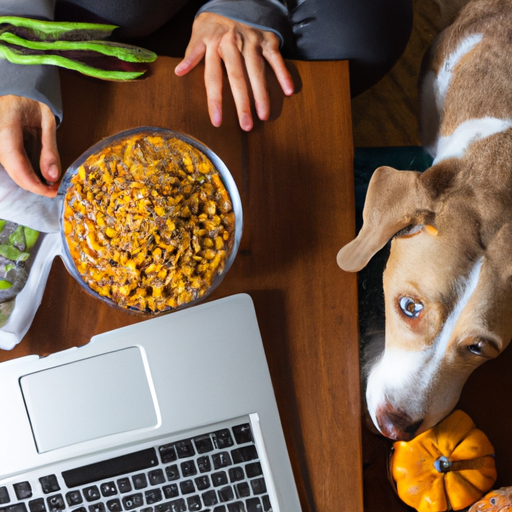As a pet parent, you know that your dog’s health is crucial. One common health problem that dogs may encounter is constipation. Constipation in dogs can be a sign of various health issues, or it could simply mean that your dog’s diet needs some adjustments. This article is designed to provide you with a comprehensive guide on what to feed dogs with constipation, offering insights into the causes, symptoms, and dietary solutions to this common canine ailment.
Table of Contents
- Understanding Dog Constipation
- Signs of Constipation in Dogs
- What to Feed a Constipated Dog
- Foods to Avoid
- Frequently Asked Questions
Key Takeaways
- Constipation in dogs can be due to various factors including diet, hydration, and underlying health issues.
- High fiber foods, hydration, and physical activity can help alleviate constipation.
- Certain foods can exacerbate constipation and should be avoided.
Understanding Dog Constipation
Constipation in dogs, much like in humans, involves difficulty in passing stools. It can be due to various factors such as dehydration, lack of exercise, and certain medications. Furthermore, underlying health issues can also lead to constipation. It’s important to consult with your vet if your dog’s constipation persists, as it could be a symptom of a more serious condition.
This article from PetMD provides an overview of constipation in dogs, its causes, and treatment options.
Signs of Constipation in Dogs
Recognizing the signs of constipation in your dog can help you address the issue promptly. Some signs to watch out for include:
- Difficulty or straining to poop
- Producing hard, dry stools
- Reduced appetite
- Lethargy
- Abdominal discomfort
If you notice these signs, it might be time to take a look at your dog’s diet. Your canine friend may not be getting enough fiber or fluids, both of which are essential for regular bowel movements.
What to Feed a Constipated Dog
When it comes to what to feed dogs with constipation, fiber is key. The dietary fiber helps draw water into the stool, making it easier to pass. Here are some foods you can incorporate into your dog’s diet:
- Pumpkin: This is a high-fiber food that can help alleviate constipation. You can add a spoonful of canned pumpkin to your dog’s regular food. Be sure to use pure pumpkin and not pumpkin pie filling.
- Sweet Potatoes: Like pumpkin, sweet potatoes are high in fiber and can be a good addition to your dog’s diet. Boil or steam them without any seasonings and mash them up before serving.
- Green Beans: These are another high-fiber option that can help alleviate constipation. You can serve them cooked or raw, but make sure they’re unseasoned.
- Wheat Bran: This is a high-fiber supplement that you can mix into your dog’s food.
Hydration is also important. Ensure your dog has access to fresh water at all times. Add a little more water to their food to increase their fluid intake.
You can also consider high-quality commercial dog food that is formulated to promote healthy digestion. Websites like OneTopDog provide reviews and guidance on choosing the best dog food for your pet’s specific needs.
Foods to Avoid
While some foods can help alleviate constipation, others can exacerbate the problem. Foods high in fat and low in fiber can lead to constipation. Avoid feeding your dog foods like cheese, meats, and processed dog treats.
Furthermore, some foods are toxic to dogs and should always be avoided. These include chocolate, grapes, and onions. This list of best dog foods from OneTopDog provides healthy options for your dog.
Frequently Asked Questions
1. How long can a dog go without pooping?
A healthy dog typically poops once or twice a day. However, every dog is different. If your dog hasn’t pooped in more than two days, it may be constipated.
2. Can I give my dog a laxative?
Never give your dog a human laxative without consulting with a vet. Certain laxatives can be harmful to dogs.
3. How can exercise help my constipated dog?
Physical activity helps stimulate bowel movements. Regular walks and playtime can help alleviate and prevent constipation.
4. Can constipation be a sign of a serious health issue?
While constipation can be a sign of a serious health issue, it is often due to dietary factors. If your dog’s constipation persists after dietary changes, consult with a vet.
Understanding what to feed dogs with constipation can help you alleviate your dog’s discomfort and promote regular bowel movements. Remember, when making dietary changes, do so gradually to avoid upsetting your dog’s stomach. Always consult with a vet if you’re unsure or if your dog’s symptoms persist. For more information on dog health and nutrition, visit OneTopDog.



